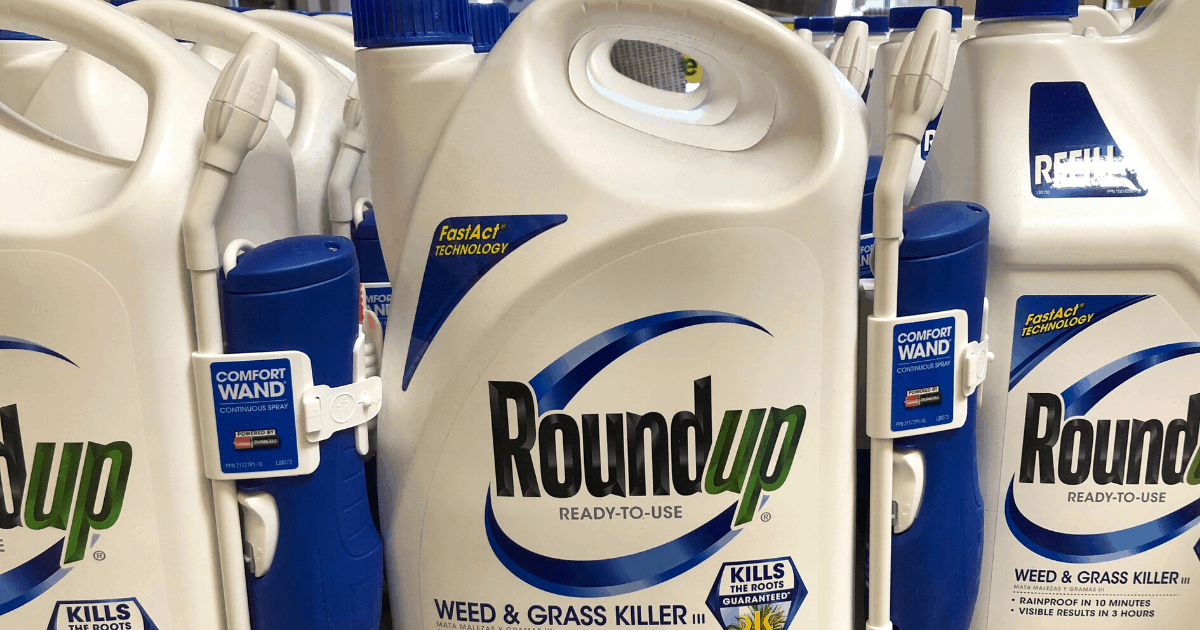Roundup. Killing weeds? Or killing people?
Roundup is a weedkiller created in the ’70s by The Monsanto Company. Initially, Roundup was created to help kill weeds in gardens, lawns, and farms. One of the main ingredients in Roundup is glyphosate. Glyphosate is a broad-spectrum systemic herbicide and crop desiccant. Roundup and glyphosate have been linked to cancer, birth defects, and many other health problems.
So, What types of cancer does Round up cause?
Multiple studies have found a connection with Roundup to Non-Hodgkin Lymphoma, Leukemia, and B-cell Lymphoma.
Non-Hodgkin Lymphoma
Non-Hodgkin’s lymphoma is a cancer that starts in your lymphatic system. Non-Hodgkin’s lymphoma is more common than the other general type of lymphoma.
Signs and symptoms of non-Hodgkin’s lymphoma may include, for example:
- Painless, swollen lymph nodes in your neck, armpits, or groin
- Abdominal pain or swelling
- Chest pain, coughing, or trouble breathing
- Persistent fatigue
- Fever
- Excessive sweating, especially at night
- Also, unexplained weight loss (1)
Leukemia
Leukemia is the cancer of the body’s blood-forming tissues, including the bone marrow and the lymphatic system. The symptoms vary, depending on the type of leukemia.
Common leukemia signs and symptoms include, for example:
- Fever or chills
- Persistent fatigue, weakness
- Frequent or severe infections
- Losing weight without trying
- Swollen lymph nodes, enlarged liver or spleen
- Easy bleeding or bruising
- Recurrent nosebleeds
- Tiny red spots in your skin (petechiae)
- Excessive sweating, especially at night
- Also, bone pain or tenderness (2)
B-cell Lymphoma
B-cell Lymphoma is a type of non-Hodgkin’s lymphoma with some variations. This is a rare type of cancer that begins in the white blood cells and attacks the skin.
Common B-cell lymphoma symptoms may include, for example:
- Enlarged lymph nodes.
- Night sweats.
- Fever.
- Unexplained weight loss.
- Fatigue.
- Appetite loss.
- Trouble breathing.
- Pain or swelling in your belly.
- Also, severe itching. (3)
So, who is at risk of developing cancer from Roundup?
With millions of users, the possibility of getting sick from using Roundup is very high. People most at risk for example are:
- Farm Workers
- Gardeners
- Garden Center Employees
- Nursery Employees
- Also, Landscapers
Overall, over a hundred thousand people have been affected by Roundup, and the number grows every year.
What to do if you developed cancer because of Roundup?
The toxic weed killer Roundup has been declared a “probable human carcinogen” by the World Health Organization (WHO), and many other medical studies have found it to be hazardous. As soon as you feel symptoms of cancer, it is crucial that you check in with a doctor immediately. Furthermore, if you used Roundup Weed Killer and developed Leukemia or Lymphoma, you may be entitled to significant compensation.
Compensation for:
- Past and future medical expenses to treat your cancer
- Past and future pain and suffering that results from your injuries.
- Wage loss and lost earning capacity
- Other economic losses you might have sustained as a result of your illness and treatment.
- Additionally, Punitive damages, if appropriate.
Call Attorneys For All anytime at (281) 475-4535 or fill out our form here for a FREE consultation.
- Initially, we’ll analyze your situation at no cost or obligation
- Determine if you are entitled to file for compensation
- Also, show you the next steps if you decide to pursue compensation
Sources:


